We at International fovea-Z Biomedical Association is happy to announce an exclusive webinar on the cutting-edge advancements in Virtual Reality, led by none other than Professor Robert J. Stone, a pioneer in the XR field since 1987 from the University of Birmingham, United Kingdom.
🗓️ Date: Saturday, 22nd June 2024
⏰ Time: 7:00 PM - 8:00 PM IST
This webinar is completely FREE and offers an incredible opportunity to learn from one of the leading experts in the field. Plus, all participants will receive a free certification upon completion.
Author biography
Professor Robert J. Stone
BSc (Hons), MSc, C.Psychol, AFBPsS, FCIEHF

A “veteran” of the Virtual, Augmented and Mixed Reality (VR, AR, MR – “XR”) communities, Robert (Bob) Stone is Emeritus Professor of XR and Human Factors within the School of Engineering at the University of Birmingham, Director of the University’s Human Interface Technologies Team (www.birmingham.ac.uk/hit-team).
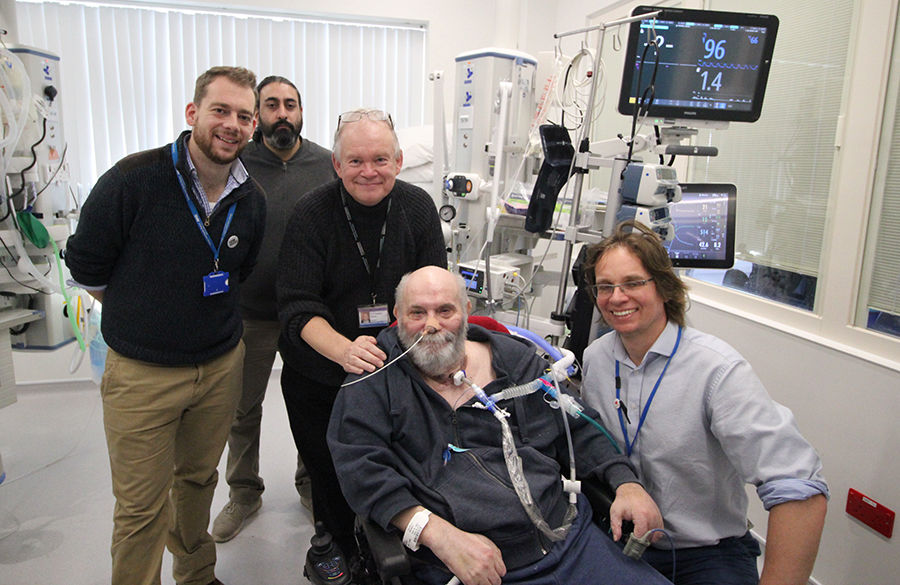
He is also an independent consultant in Human-Centred Design, XR and related interactive technologies, with a career spanning over 40 years in both commercial and academic organisations.
Bob joined academia in 2003 (with a full Chair in Interactive Multimedia Systems), after a career as a director of a small commercial Virtual Reality (VR) company he founded in 1989 in Manchester.
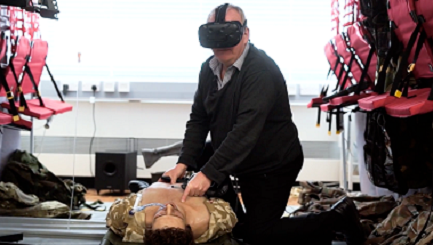
He graduated from University College London in 1979 with a BSc in Psychology, and in 1981 with an MSc in Ergonomics. Bob is a Fellow of the UK’s Chartered Institute of Ergonomics & Human Factors, a Chartered Associate Fellow of the British Psychological Society and an ACM Siggraph Pioneer. He was appointed as an Honorary Professor of the South Russia State Technical University (Novocherkassk) at that University’s 100th Anniversary in 2007, prior to which, in May 1996, he was elected to become an Academician of the Russian International Higher Education Academy of Sciences in Moscow. In 2021,
Bob was appointed as a special research advisor at The University of Malaysia Perlis’ Centre for of Excellence in Advanced Computing.
During his time in industry,
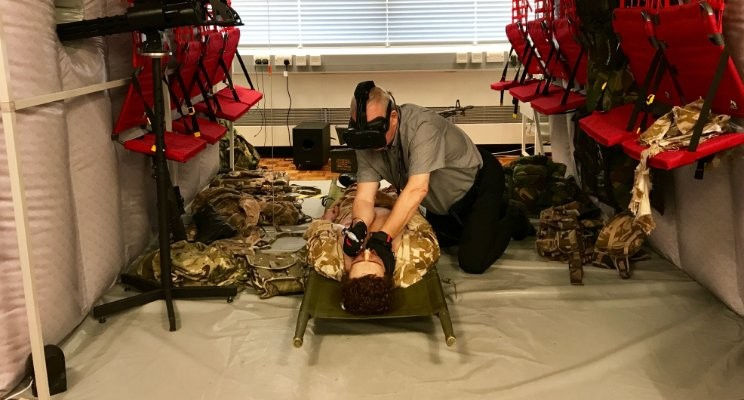
Bob undertook research into the rôle of Human Factors/ergonomics in the implementation of VR, with regular contributions to VR applications projects in the fields of defence, surgery, heritage, engineering and health and safety aspects of VR.
He was the Research Director of the UK Human Factors Integration Defence Technology Centre for over 6 years (during its existence between 2003 and 2012), and it is from within this Centre that many of his team’s projects originate, covering human-centred design and evaluation methodologies for applications as varied as close-range weapons training and support for surgical and mental health therapies, submarine safety awareness (drawing on his experiences with manned submersibles, including the LR2, LR5 and Mantis Duplus – as featured in the James Bond Film For Your Eyes Only – as well as his sea trip onboard the nuclear submarine HMS Tireless in 2007), IED search and disposal training and unmanned systems operation, including the use of low-cost drones for remote sensor data visualisation. From an impact perspective,
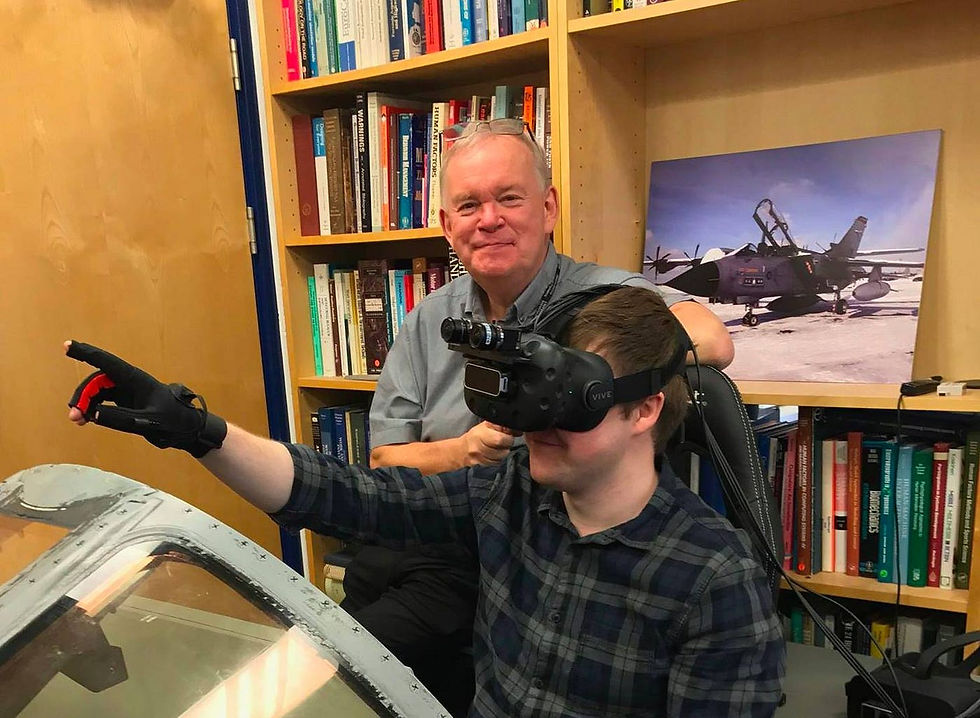
Bob’s defence research has influenced the uptake of VR technologies throughout the Armed Forces in the UK, Canada and Australia, and his team’s high-fidelity CUTLASS bomb disposal simulator, the result of 3 years of Dstl research funding, was installed in ordnance disposal squadrons across the UK (Including Northern Ireland), Cyprus and Gibraltar.
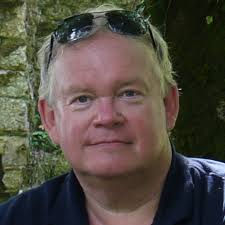
More recently, Bob and his team have been undertaking innovative research for Dstl and BAE Systems addressing future reconfigurable multimodal and mixed reality centres for naval and land-based command and control applications.
His early medical Human Factors research led to the development of a suite of unique simulated perceptual-motor tasks for a world-first laparoscopic cholecystectomy basic surgical skills simulator, MISTVR. MISTVR was marketed for over 10 years by Mentice of Sweden and was adopted by the European Surgical Institute (Norderstedt, Germany) in 1998 as a de facto training technology for keyhole surgery training.

Stone’s Human Factors efforts were also instrumental in the development of a prototype mastoidectomy simulator, funded by the EU as part of a project called IERAPSI. Between 1997 and 2005, he held the position of Director of Virtual Reality Studies for the North of England Wolfson Centre for Minimally Invasive Therapy (Manchester Royal Infirmary).

From 1999 to 2002, Bob sat on a working party on behalf of the Royal College of Surgeons’ Joint Committee on Higher Surgical Training (JCHST) investigating the assessment of surgical training and competence. In January 2000, he passed the Royal College of Surgeons of England’s Basic Surgical Skills course. Between 2005 and 2007, Bob was a Human Factors consultant to the US Office of Naval Research-funded Pulse!! Virtual Healthcare Project (collaborating with Texas A&M University Corpus Christi).
He has also acted in the role of ergonomics consultant to a MedLINK/DoH-sponsored project addressing the development of a new generation of endoscopic surgical support robots.
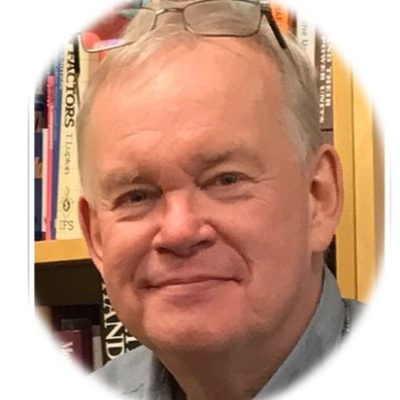
Today, he works closely with the Royal Centre for Defence Medicine and the Queen Elizabeth Hospital in Birmingham, researching the use of VR for post-operative restoration and rehabilitation programmes for military and civilian patients in Intensive Care and a unique Mixed Reality solution for the training of future defence medics deployed as part of Medical Emergency Response Teams.
He is also working to take unique real-world experiences into care homes and hospaice for the benefits of residents, young and old.

From 1980 to 1989 he was involved in defence Human Factors research, later in the rôle of group leader at British Aerospace’s Sowerby Research Centre in Bristol, UK. As well as building up experience of working in the defence arena, he specialised in research relating to offshore operations and remotely operated vehicles (ROVs) performed under contract to the UK Department of Energy. For this research he was awarded the UK Ergonomics Society’s 1985 Applications Award.
As part of his early BAe work, he was actively involved in the telerobotics field, carrying out review, consultancy and experimental studies for the nuclear industry and the European Space Agency. In June 1987, he became the first European to experience the NASA VIEW Virtual Reality System at Moffat Field in California, an experience that proved to be a major turning point for his career. In 1989, Bob left BAe to join the UK’s National Advanced Robotics Research Centre in Salford, supported by the DTI and a range of industrial shareholders.
There he formed a team of Human Factors and software specialists to develop VR technologies for sophisticated mobile and manipulative robots, including the Teletact I and II Gloves - the world’s first tactile feedback glove systems for VR and telepresence applications. During his time at the Centre, he formed a strong and lasting partnership with simulation and training specialists in Russia based at the Yuri Gagarin Cosmonaut Training Center in Star City, and supported the Russians, both in acquiring UK VR software and in understanding the techniques of VR, leading to the “build” of the first ever external and internal VR model of the Mir Space Station.
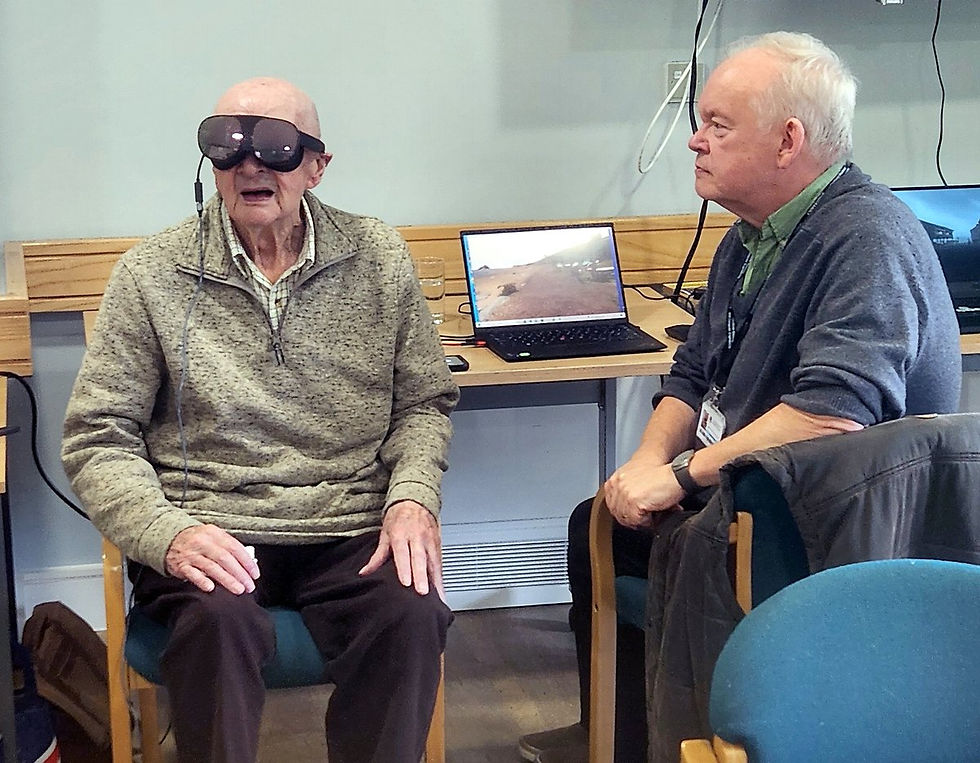
As a result, at an event held in Star City in 2000 to mark the 40th anniversary of the YuGCTC, Bob was accredited by General Pyotr Klimuk, the Center’s then-Director as responsible for “introducing VR into the cosmonaut space programme”. Today he continues his interest in space Human Factors and simulation, as a consultant to the inner and outer space organisation Blue Abyss.
After a successful 3 years of R&D, the Robotics Centre became commercial (Intelligent Systems Solutions Limited) and, following an appearance on the BBC’s 9 O’Clock News in January, 1993, he brought together (initially) 12 companies to fund the world’s first industrial collaborative project addressing the commercial uses of VR. VR Solutions was launched as a company in its own right in October, 1995, merging with London-based Virtual Presence Limited in June of 1997.
As well as engineering, aerospace, defence and medical projects, Bob’s team also pioneered early developments in Virtual Heritage, including Virtual Stonehenge, launched at the London Planetarium on the eve of the 1996 Summer Solstice, hosted by the late Sir Patrick Moore.
In 2006, he led the Virtual Scylla project, a unique maritime archaeology and ocean ecosystem initiative based on Europe’s first artificial reef, in collaboration with the National Marine Aquarium and the Marine Biological Association, designed to exploit the use of “serious games” and artificial life technologies to educate children and adults alike to the fragility of coastal ecosystems.
Bob has also been involved with maritime projects based on the 1914 loss of the submarine HMS A7, the Anne - a 17th Century ship of the line, and GLAUCUS, the UK’s first subsea habitat. He was the team leader for the Virtual Mayflower project, exploiting VR, AR and MR technologies for the public and schoolchildren during 2020 and 2021 – the 400th anniversary of the transatlantic crossing of the ship that took the Pilgrims to the New World.
Today, he describes Virtual Heritage as his number one “passion” and regular undertakes projects with his team in the Midlands and West Country, using on-land, sea, subsea and air technologies, from drones to mini submersibles, and from 3D scanning systems to 360 panoramic cameras. In particular, he is building on his and his team’s research into how heritage assets – heritage steam railways in particular – can provide unique experiences and “escapism” for residents of hospices and care homes.
Bob has featured on TV and radio programmes dealing with Virtual Reality, in many newspaper and trade journal articles on the subject, and lectures widely on Virtual Reality at professional institutions, universities and public functions across the UK.
He has represented the UK (invited lectures) at international robotics and VR functions across the globe. In 1993, he received the Ergonomics Society’s Otto Edholm Award for his work in the field of VR. Between 1992 and 1994 he presented the IEE’s (today the IET) Silvanus P Thompson Lecture Series on VR across the UK, Eire and Germany and gave the IEE’s 1996 Christmas Lecture and 1998 Faraday Lectures, again focusing on VR. During 2004 and 2005, he once again lectured across the UK for the IEE, this time as part of a Prestige Lecture Series on the topic: Whatever Happened to Virtual Reality?
In 1999,
Bob was awarded the Royal Society for the Encouragement of Art, Commerce and Manufactures’ Howorth Medal, for “…distinguished contributions, over time, to successful industrial or commercial achievement, and to life in the (North West) region, through outstanding innovation and enterprise…”. In 2003, he was awarded the Laval Virtual Trophée d’Honneur for his “service to the European Virtual Reality Community” since 1987 and, in the same year, was made an Honorary Cossack at a ceremony in Starocherkassk, the former Don Cossack regional capital, recognising his decade of VR collaboration with the Russians.
Also in 2003, he was awarded the UK Ergonomics Society’s Sir Frederic Bartlett Award, the highest award given by that Society to an individual (and the first time ever that an individual had been awarded by the Society three times in their career). In 2011, Bob was awarded the MoD Chief Scientific Advisor’s Commendation for his contributions to Defence Science & Technology, the highest award given to an individual by that Governmental Department.
In July 2017, Bob and his University team were awarded the West Midlands Academic Health Science Network Innovative Team of the Year Award, in recognition of their achievements in VR for healthcare applications. In 2018, Bob was awarded the Medical LiveWire Global Award for "Excellence in VR Healthcare Technology” and in 2019, the “Innovation in Medicine and Health” Award at the Inaugural West Midlands Tech Awards.
Bob and his academic team were awarded the 2020 Innovation Award from the Chartered Institute of Ergonomics & Human Factors for their Mixed Reality research in defence medicine. In 2024, Bob was inducted into the AWE’s (Augmented World Expo) prestigious XR Hall of Fame.

Don't miss out on this chance to expand your knowledge and network with like-minded professionals. Click the link to join us on this exciting journey into the future of Virtual Reality!
Register here for receive the link through mail https://forms.gle/jdU1LNiCwcEtCYDLA
Thanks
With Best Regards
ATHEENAPANDIAN PRIVATE LIMITED

Comments